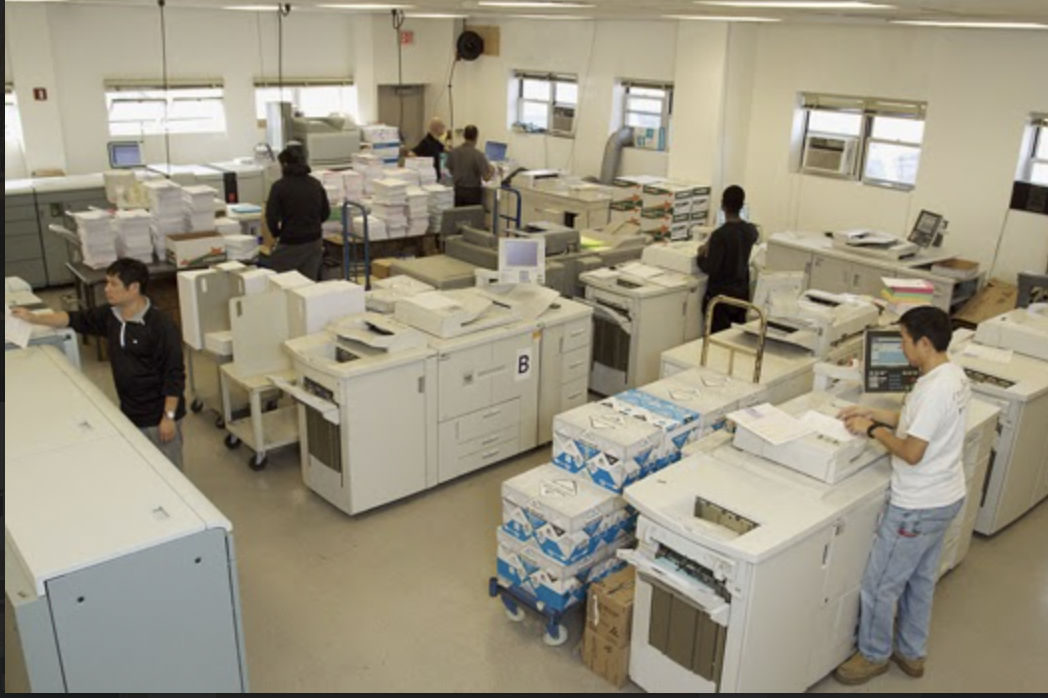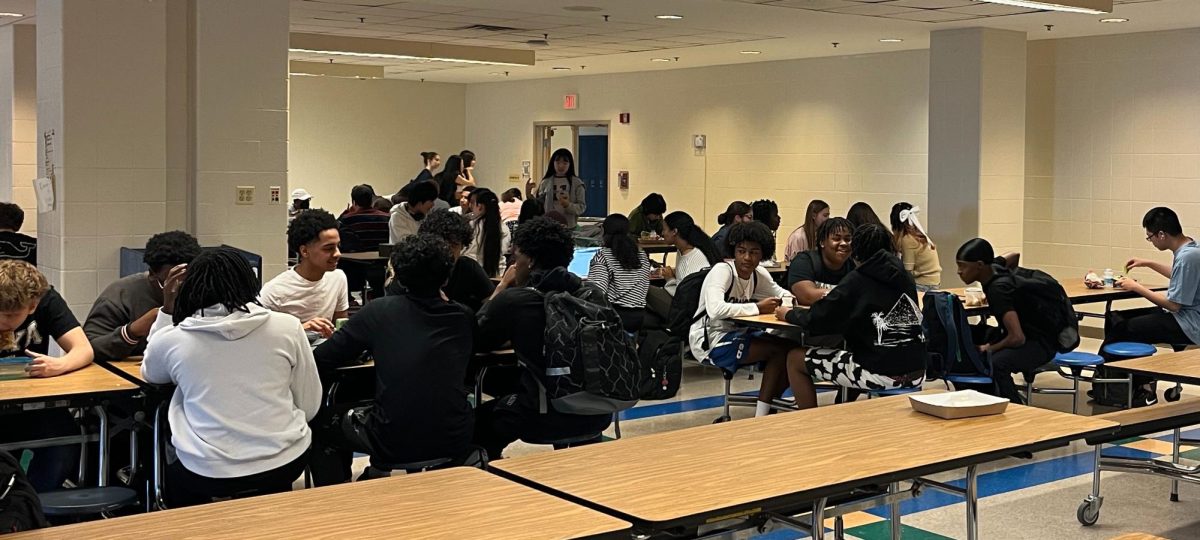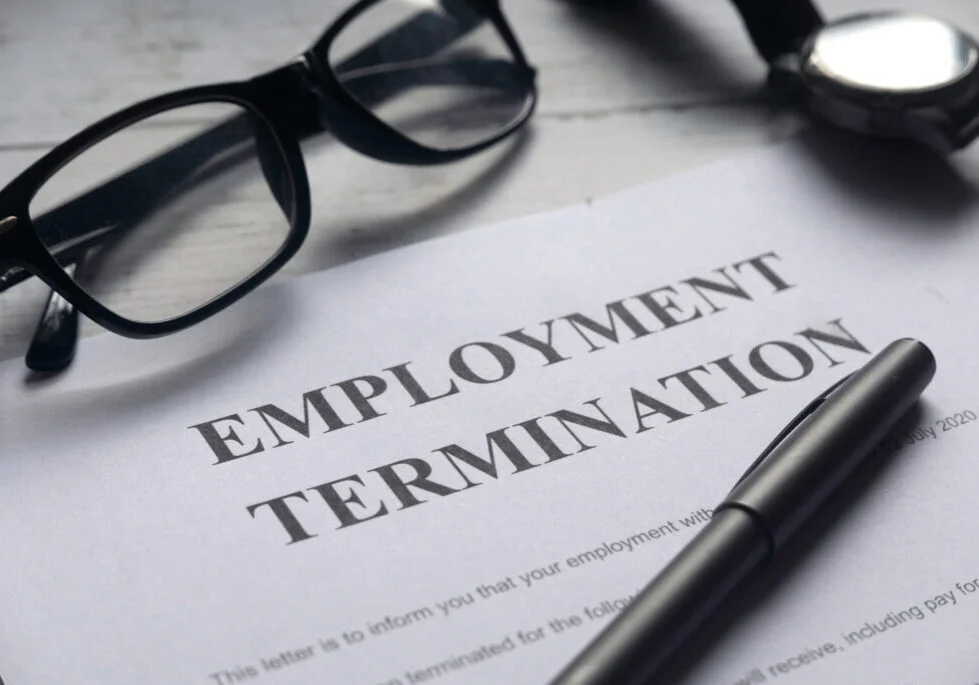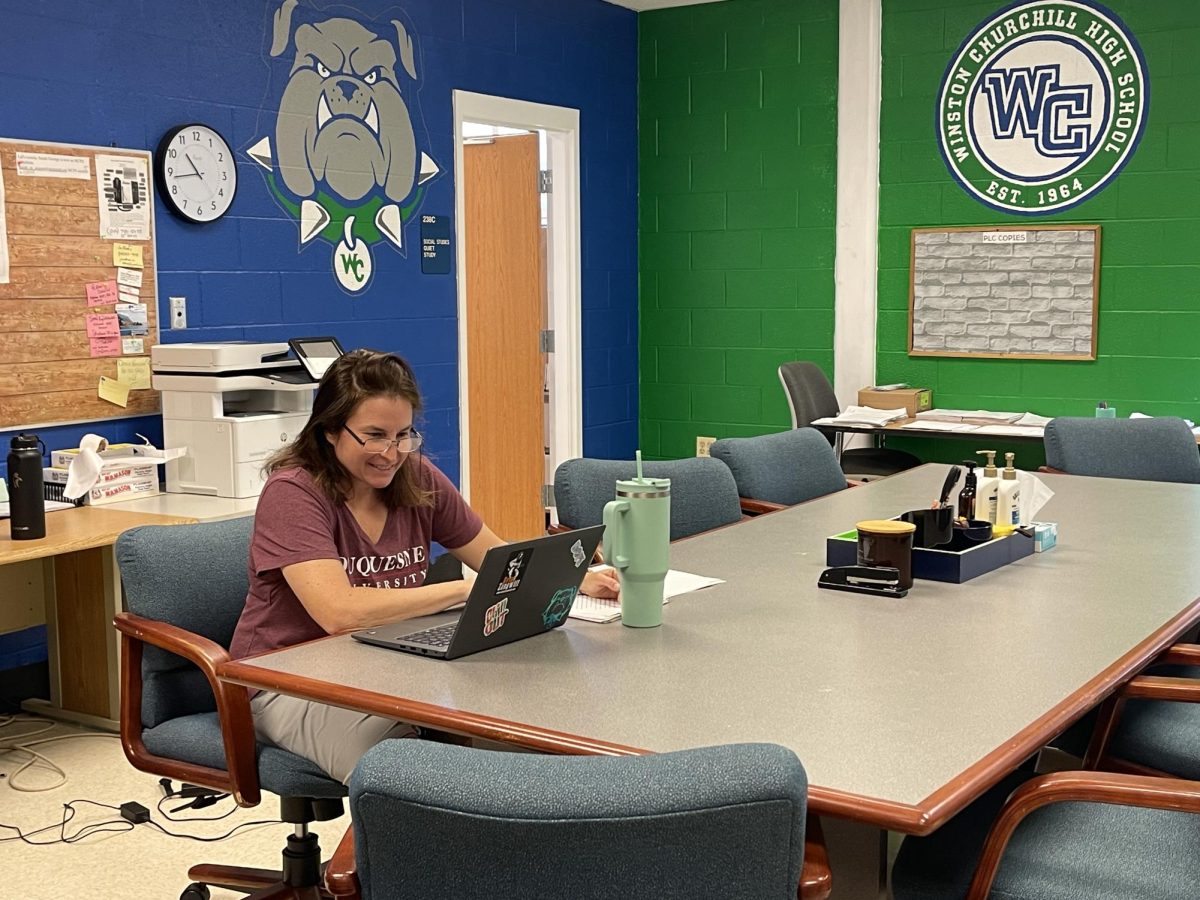Broken copiers. Slow Wi-Fi. Old laptops. These are just some of the issues WCHS students and staff face daily. In an ever-digitizing school system, dependence on functioning technology becomes increasingly essential. Despite this, WCHS students and staff have been facing a myriad of tech issues to start the 2023-24 school year, all of which serve as an obstacle to school life.
“The major issue with technology at WCHS would be restrictions imposed by MCPS and the hardware of Chromebooks,” WCHS junior Daniel Song said. “Downloading any application from the open web is highly restricted, and [while this prevents cheating] it also makes doing research and having multiple working tabs open at the same time an issue.”
MCPS’s content restrictions, which block students’ ability to download from the open web and access certain websites, severely inhibit clubs, especially ones relating to STEM or programming. In addition, school-provided laptops often cannot run the programs these clubs require, even if no restrictions exist. This forces students to bring their own devices, which raises more issues.
“I would say that my club and any other similar clubs would operate one thousand times better if the school provided us with better technology,” Song said. “With school-provided devices, personal computers would not be a problem for members [who are interested] but don’t have a personal device.”
While WCHS students face content restrictions, teachers face problems with broken copy machines. This issue is particularly exacerbated by the fact that education at WCHS heavily relies on functioning technology; therefore, if something does not work—in this case, the copy machines—classes are severely disrupted.
“If [the] Wi-Fi goes down, my class can’t function,” WCHS teacher Allison Deli said. “I feel like they should send us all home when there’s no Wi-Fi. But the copy machines are huge. I’m going to say that’s the number one thing I’ve heard for the last two weeks, the copy machines.”
MCPS teachers have long used Copy-Plus, a county-wide document duplication and delivery service meant to lessen burdens on schools experiencing copier issues. However, according to MCPS’s web page on Copy-Plus, orders have delayed delivery times from five-day delivery to 12-day delivery. In some cases, WCHS teachers have been dealing with time frames of 15 days.
“I don’t know any teachers that have an issue with Copy-Plus when it was a five to seven-day turnaround,” Deli said. “15 days is abhorrent; that means I should already be sending in things for the second quarter.”
County-level apathy means that the burden of addressing WCHS tech issues falls to IT Systems Specialist Zachary Higgins. From Wi-Fi problems to broken projectors, he is often the school’s greatest resource. Higgins says that most technology replacement and upgrading is a county-wide process. This means that work orders must be placed, and county programs must get involved.
“Typically over the summer and occasionally over winter and spring breaks, teams from MCPS central office go from school to school upgrading and updating displays, printers, computers, etc.,” Higgins said. “Copiers are county machines, [and] when they break down, a repair order is placed and a technician is sent our way. Unfortunately, we have to wait our turn until the tech can get here.”
WCHS also deals with more immediate, school-wide problems. The constant connection of thousands of computers and smartphones to the school Wi-Fi takes a toll on bandwidth, necessitating the replacement of devices and cables.
“From what I’ve seen, the biggest issue is wear and tear,” Higgins said. “Both students and staff are generally responsible with [the] equipment they’ve been issued, but things happen. The best course of action is to have backup devices, cables, etc. to swap out if an issue is hardware-related and can’t be fixed here at the school.”
Despite county-wide setbacks and school-level tech issues, many of the technological challenges faced by WCHS students and staff can be addressed by having respect for school devices.
“I’d say the virtual years of the pandemic have made students and staff more tech-literate than years before,” Higgins said. “If anything could mitigate most of the issues, I’d say it would be diligence—care when handling devices, making sure they’re charged the night before [and] not misplacing equipment.”
Still, tech challenges at WCHS, or any other school, are bound to happen. Keeping hundreds of devices for dozens of classes working for an entire school year is a massive challenge that strains the tech department at the school.
“We are thousands of people using a myriad of devices doing a variety of tasks,” Higgins said. “If students are aware of a consistently problematic area of the school, let a staff member know, and it can be looked into.”









